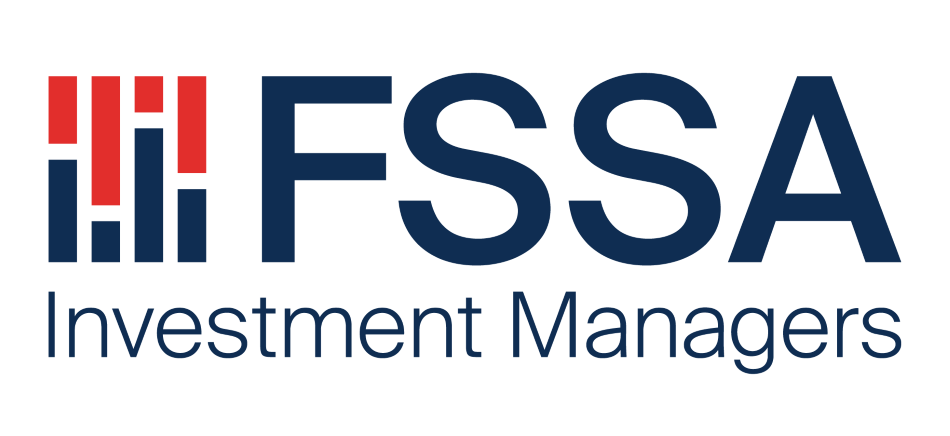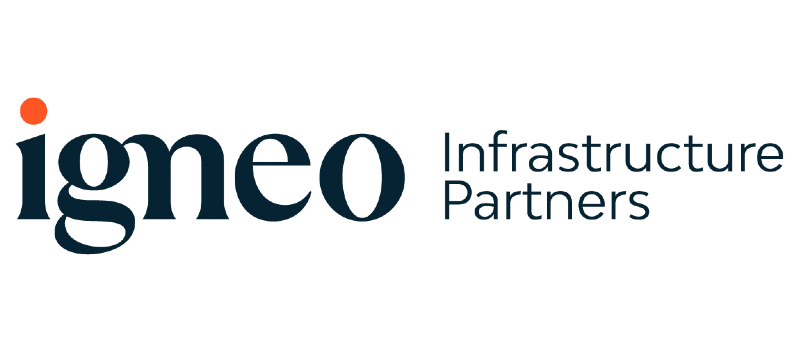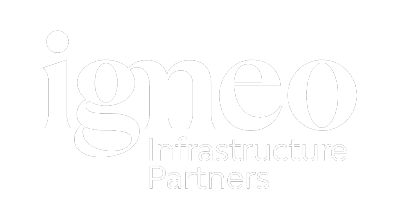Your search returned more than 50 results. The 50 most relevant results are displayed.
Learn about investing in Asian equities with FSSA IM today. Our Asia funds invest in high-quality companies with the potential to outperform over the long term.
Learn about investing in the world's fastest growing markets with FSSA Investment Managers. We invest in high quality equities that outperform over the long term.
End of Year Review
End of Year Review
End of Year Review
End of Year Review
This has been an unprecedented time which continues to evolve from a markets and Covid-19 perspective. Please tune in to a panel discussion with FSSA’s lead portfolio managers: Alistair Thompson, Director; Martin Lau, Managing Partner andVinay Agarwal, Director.
This has been an unprecedented time which continues to evolve from a markets and Covid-19 perspective. Please tune in to a panel discussion with FSSA’s lead portfolio managers: Alistair Thompson, Director; Martin Lau, Managing Partner andVinay Agarwal, Director.
We have written about the spate of Initial Public Offerings (IPOs) in India and our reasons for staying away from them, for the most part. This time, we want to talk about why new listings are important to keep the market vibrant and to keep the entrepreneurial spirit in the country alive.
Asia Pacific Equities Strategy Client Update
As the saying goes, “There are two kinds of forecasters: those who don't know, and those who don't know they don't know.” Recently, we have seen hordes of the latter kind, garbed as analysts, Unicorn founders, freshly-minted CEOs and so-called “experts”, as they engage in modern-day snake oil salesmanship, which is what seems to pass for Fundamental Equity Research these days.
Our investment philosophy is to back owners and managers with whom we feel strongly aligned. These owners typically have track records of treating all stakeholders fairly, in both good and bad times.
Land, Labour, Capital and Entrepreneurship. These are the well-known “Factors of Production” as defined by classical economists. The Entrepreneur (or Company) is the one that combines these factors to earn a profit.
FSSA Investment Managers Asia Pacific webcast: Positioning for Reflation
The pandemic has accelerated certain long-term shifts in consumer behaviour, such as using more online orders for everything from clothing to food. The latest battleground appears to be groceries, but the disrupter emerged from a not-so-new technology — WeChat groups.
50x P/E!1 70x P/E! 100x P/E! Valuations that were outrageous just a few years ago are commonly bandied about by most of the investment community these days. But, ask any respected business owner and they would shake their head in disbelief
China made headlines for watering down coal reduction targets during COP261, but we think the criticism is unfair. The nation’s own targets set by President Xi Jinping last year — for peak emissions before 2030 and carbon neutrality by 2060 — are still ambitious and noteworthy considering China’s faster economic growth compared to developed countries.
FSSA Investment Managers, Asia-Pacific, Asian equities
As with global automotive manufacturers, several Indian automotive original equipment manufacturers (OEMs) including Maruti Suzuki, Mahindra & Mahindra (M&M), Tata Motors and Eicher Motors have recently announced that the shortage of semiconductor supply has impacted their production schedules. This has added to the persistent challenges faced by the industry over the last few years.
There is still significant uncertainty around Covid-19 and its potential impact globally. The situation could become worse before it gets better – and no one knows when the bottom will be. So far, China has borne the brunt of the epidemic, with parts of the country in lockdown and business activities in some cities grinding to a complete halt.
In almost every meeting that we have with management teams, we will ask about incentivisation. In our view, it is an important question and the answer can be highly revealing about an organisation’s culture and behaviour.
Year to date, 34 companies have listed on the Indian exchanges raising a total of USD7.2 billion1, a figure which has been surpassed in India only twice before in the last 12 years on an annual basis. In our Monthly Manager Views in April 2021, we spoke about the initial public offering (IPO) rush that we had begun seeing in India early this year. Unsurprisingly, we have seen this frenzy continue, similar to what has been observed in many global markets.
In the first three months of this year, 17 new companies have listed on the mainboard exchanges in India, more than in all of 2019 or 2020*. High levels of retail investor participation and continuing inflows for domestic mutual funds have meant that these new issuances have been lapped up by eager investors. It is not unusual for an IPO to be subscribed 100 times of its offer size or deliver substantial gains on the listing day itself. Blogs track the fluctuating “grey market premium” weeks in advance, indicating likely listing gains. For many investors, receiving an allocation for the next hot deal often takes precedence over analysis of the business itself.
First Sentier Investors, a leading global investment manager is pleased to announce the appointment of John Bennett as the new Head of UK Wholesale, effective immediately.
What are your thoughts on the increasing regulation risk of investing in China? Firstly, regulations are nothing new — it has always been a part of the investment equation. If we look at Hong Kong or Singapore for example, the government would introduce new regulations on the property market from time to time; and in China, the government has introduced a number of new regulations for banks and insurance companies over the years.
The Sustainable Finance Disclosure Regulation (SFDR) requires asset managers to report on up to 20 Principal Adverse Impact (PAI) indicators. PAIs are the negative impacts caused by a firm or an asset on the environment and society.
Leading global investment manager, First Sentier Investors (FSI), today announced the outcome of a review of its existing investment capabilities against its strategy.
Given its size and influence, China remains a key investment destination despite ongoing trade disputes and diplomatic tensions with the US and Australia. With a GDP equivalent to around 70% of the United States, many global portfolios continue to feature Chinese equities.
The Sustainable Finance Disclosure Regulation (SFDR) for the European Union Mandates the disclosure of the Principal Adverse Impacts (PAI) that investment decisions have on sustainability factors.
This article focuses on three of the PAIs related to Biodiversity Areas, Emissions to Water, and Hazardous and Radioactive Waste. Each PAI provides details about the measures, some of the challenges related to them, and how investors may use the information they provide.
FSSA Investment Managers - India equities
We had entered the meeting with a leading air-conditioner company in our portfolio worried about the risks to its growth and profitability, as the second wave of Covid-19 affected consumer demand and raw material costs rose sharply. But the company’s CEO told us about the acceptance of increased prices by their channel partners and customers and strong demand before localised lockdowns were introduced in April. The company had reported a 24% growth in sales and more than doubling of its operating profit in the quarter ended March 2021, compared to the same period last year. He was optimistic about an improvement in their profitability despite a significant increase in raw material costs and was continuing their investments in expanding capacity.
Every company we speak to these days tells us about the cost pressure that they are facing, emanating from rising global commodity prices. Domestic steel prices have risen by 35% y/y, copper by over 50% y/y and palm oil by over 60% y/y through February 2021. Indian corporates are being forced to reckon with sharp increases in input costs for the first time in almost a decade. We believe that pricing power is often the critical litmus test of a franchise’s quality.
China’s e-commerce and online services were among the few bright spots against the dismal economic backdrop this year. Many companies reported a surge in online sales during Covid that has remained elevated even as the number of cases fell and lockdown measures eased. While sales at China’s bricks-and-mortar retailers fell by 19% over the first quarter, online shopping grew by 6% over the same period.
First Sentier Investors, a leading global investment manager, today announces that it is setting its first nature targets as a Taskforce on Nature-related Financial Disclosures (TNFD) Adopter, in the lead up to the inaugural Global Nature Positive Summit hosted in Sydney this week.
David Allen brings with him more than 20 years of global asset management experience where he specialised in building investment businesses and leading investment teams.
First Sentier Investors, a leading global investment manager, is pleased to announce the appointment of Jamie Downing as the new Head of Distribution in EMEA, as the business continues to strengthen its global distribution team.
The China equity market includes a myriad of share classes, each with distinct characteristics. ‘Offshore’ Chinese equities are listed on overseas stock exchanges such as New York and Hong Kong and denominated in foreign currencies, while ‘onshore’ Chinese equities are listed on the Shanghai and Shenzhen Stock Exchanges and denominated in RMB.
We examine the characteristics and trend of a well-known measure of quality - Profitability. Firstly, we discuss some of the reasons why it is a useful measure and why it might be persistent through time. It is a strong contributor to alpha, both on the long and short sides.
In boom times like today, when cash costs nothing and capitalisation rates are zero, everybody is focused on growth and the future. Revenue is vanity in the sense that entrepreneurs, thank goodness, dare to dream and build businesses. We too, spend much of our time looking for the next opportunity and indeed thinking about how much businesses can grow.
Mutations, it would seem, are not unique to the virus. Starting with some housekeeping, we always end our letters seeking feedback from our regular readers.
While the pandemic is still far from over, a number of key leading indicators point to a healthy and broad-based recovery in China. Industrial production, trade activity and retail sales have been strong; and in stark contrast to the lockdowns and travel restrictions in early 2020, domestic travel, tourism and the leisure sectors in China have sprung back to life.
2021 will be a year of recovery. This is not surprising given last year’s economic downturn. If vaccines are being rolled out gradually during the year, we believe the economy will recover, especially those sectors that have been hit hard like travel. Hong Kong’s travel sector declined by 99.9% last year so there really isn’t much room left to decline.
Global asset management group focused on providing high quality, long-term investment capabilities to clients. We bring together independent teams of active, specialist investors who share a common commitment to responsible investment principles.
First Sentier Investors, a leading global investment manager is pleased to announce the appointment of Adele Swan as the new Chief People and Culture Officer, effective 24 June. Ms Swan is based in Edinburgh, reporting to the CEO, Mark Steinberg.
Concentration in equity markets has reached unprecedented levels. While this has driven remarkable returns for a narrow slice of the market, it raises critical questions about diversification, valuation, and risk for equity investors.
Though Covid hasn’t yet finished with us, the markets have finished with Covid. In real life, there is still plenty of misery to go around, but things have seldom been better for investors. Optimism has served us well, as the money printing presses have rolled to counter the “unprecedented” threat. In investment, perhaps it is better to be a stupid optimist than a clever pessimist. And, markets do indeed go up most of the time.
Achieving gender equity in the corporate world has proved to be a slow and challenging journey. In both developed and emerging markets, women are a minority at both management and board levels. Decades after women began taking on professional and managerial roles, the so-called ‘glass ceiling” appears to be stubbornly persistent.
This paper outlines the responsible investing approach adopted by various First Sentier Investors investment teams across the globe. It involves a holistic way of thinking that addresses multiple impacts across multiple environmental, social and governance (ESG) measures. We believe it can lead to better long‑term financial and sustainability outcomes, across more measures, than more traditional frameworks.
We believe financial markets, critical to society’s ability to function, are under threat. For too long, it has been widely accepted that short-term performance, growth, risks and financial returns should be maximised at the expense of environmental and social outcomes.
Get the right experience for you
Your location :  United Kingdom
United Kingdom
Australia & NZ
-
 Australia
Australia -
 New Zealand
New Zealand
Asia
-
 Hong Kong (English)
Hong Kong (English) -
 Hong Kong (Chinese)
Hong Kong (Chinese) -
 Singapore
Singapore -
 Japan
Japan




























